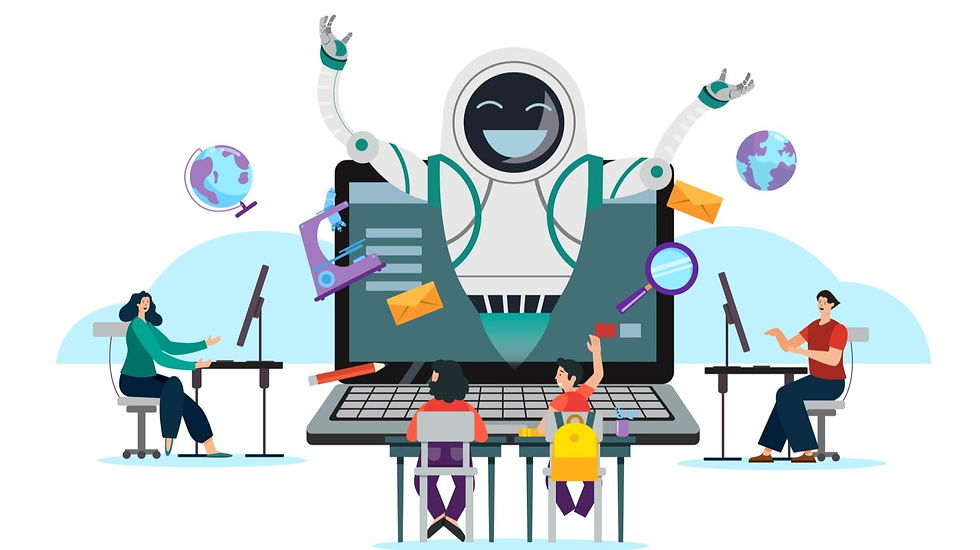AI feedback feels right, but can it really be trusted?
- Raylene

- Sep 26, 2025
- 2 min read

The rise of use of AI in universities has created both excitement and unease.
Imagine you're studying late at night, stuck on an assignment. The lecturer is unavailable, and asking a classmate you barely know feels intimidating. In a situation like this, many students turn to ChatGPT for feedback and, within seconds they get suggestions, clarifications, ideas, everything they need to keep going. This is the reality for nearly half of students today.
From one perspective, this shift is empowering. Students get immediate, judgment-free support that allows them to test ideas, make edits, and refine their work. For many students, AI feedback feels “safer” than teacher feedback, removing the fear of embarrassment or judgment. It democratises access to help which is available anytime, anywhere.
On the other hand the trust gap is undeniable. While 84% of students said AI feedback was helpful, only 60% trusted it, compared to 90% who trusted their teachers. Students recognise AI’s limits, understanding that it can lack context and be vague.
Then this raises a question, what role should AI play in education?
The answer is simple, AI and teachers must complement each other. Not compete, or replace one another. AI systems can be created to make teaching more effective, understandable and accessible for all students. AI can become a bridge, supporting both students and educators without replacing the human expertise that lies at the heart of learning. This is what responsible AI looks like; technology that empowers students and educators, ensuring everyone has an equitable opportunity to succeed.
It is simple, AI is not the enemy of education, nor is it the ultimate solution. The future lies in balance, between technology and learning, where the teacher’s role as mentor, guide, and critical thinker remains irreplaceable.














Comments